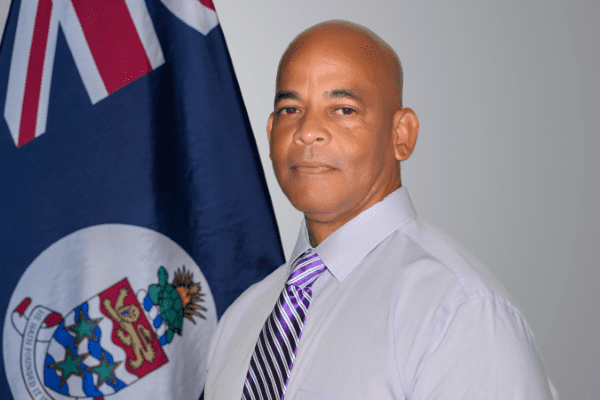I thought a part of the Cayman Islands Constitution included protections so that government could not discriminate on the basis of race or nationality? If that is the case, why are people with permanent residence still regarded as expats within the civil service? Even if a person with PR is already employed within government, Caymanians are sought to replace them, whereas in the private sector, Caymanians, PRs and status holders are treated as being on the same level with respect to employment eligibility.
Auntie’s answer: While you are right that the Bill of Rights in the Cayman Islands Constitution does protect against discrimination under section 16, proscribing bias based on such things as sex, race, colour, language and religion, that is not the same as protecting employment opportunities for Caymanians.
Deputy Governor Franz Manderson, who heads the civil service, helped to navigate this question, outlining the legal mandates concerning hiring Caymanians over permanent residents.
He first referenced section 55 of the Public Service Management Law (2013 Revision), which requires chief officers to operate a personnel policy that includes recognising “the need for the advancement of Caymanians in all parts of the civil service”, pointing out specifically, “There is no mention of permanent residents in this section.”
Mr Manderson further explained that section 26 of the Personnel Regulations (2013 Revision) stipulates when, in compiling the shortlist for recruiting staff, “a Caymanian and a non-Caymanian are found to rank broadly at the same level, the Caymanian shall be given preference”.
In citing that section of the regulations, he stressed, “This makes it very clear that Caymanians must be given the first opportunity to obtain jobs they are qualified for.”
The deputy governor then turned to section 44 of the Immigration Law (2015 Revision), which requires the various immigration boards or the chief immigration officer, when considering applications for work permits, to ensure that the employer has advertised to determine the availability of a potential employee in the following order of priority: a Caymanian, the spouse of a Caymanian, a permanent resident (the holder of a residency and employment rights certificate) and then a person legally and ordinarily resident in the Cayman Islands.
Based on these laws, Mr Manderson said, “Given this, it is clear to me that both in the civil service and private sector Caymanians are ranked higher than any other immigration category and must be given first preference when applying for jobs. The civil service complies with the law and regulations, which does mean in rare circumstances a PR holder will be replaced by a Caymanian.
“I make no apology for our compliance with the law and regulations. While I understand that this will not be pleasing to PR holders, the civil service has an irreducible obligation, as the private sector does, to ensure that Caymanians are given the jobs they qualify for.”
Mr Manderson added that while he was pleased that 74% of the government work force is Caymanian, “it is my keen desire and lawful obligation to increase that percentage by employing more qualified Caymanians – especially in the top jobs in the civil service”.






Thank you DG for standing up for Caymanians. To the person who asked the question. I bet this is the response you would have wanted if shoe was on the other foot and a PR holder was in your job.
I thought persons who were granted PR had to show they were able to be financially independent so as not to be a burden on the country and its residents? Or did our ever so weak government cave in and allow cries of discrimination stop policy from being implemented?
Some of these PR jump from job to job. Whilst born Caymanians cannot get their foot in the door. We cannot go to their country and get the choicest jobs. Their governments would never allow their people to be discrimated against. Thelook at the reason for Britain leaving the EU, too many foreigners in their country. We welcome them but not when they come to take jobs they foreigners are better of …..
Actually you can go to the UK and get any job you are qualified to do. You will, of course, need to prove you can do it and not just “know” someone!
Yes & no.
There is PR of independent means in which case yes
Then there is PR where you have to have some backup like property, a good bank balance etc. This means that if you loose your job you wont become a burden at least for a while anyway.
I suggest you read section 38 of the law. PR holders are supposed not to be a burden, ever!
Of course they caved. What has happened is disgusting.
Get out while you still can.
I remember when I got my PR, I went to our HR officer in the ministry all excited only to get a “so what, makes no difference” ( Not the exact words and presented in a very polite and professional manner). I was gutted. Anyway a year later I had my BOTC and a year after that my “Right to Be Caymanian”. I went back and saw the HR officer and said “In Your Face”. (again not the exact words and presented in a very polite and professional manner)
🙂
My dear get through your head…..you may a right to work and live but not Caymanians. Like US used the term …… Citizen big difference
Huh?
Try proofreading before hitting submit so that we all know what you are trying to say.
Thanks
Well said Franz! I am pleased someone is finally prepared to point out that unless you are a Caymanian, you are an expat!
Thank you Mr Manderson for sticking up for Caymanians. Could please influence Statutory Authorities to act in this way.